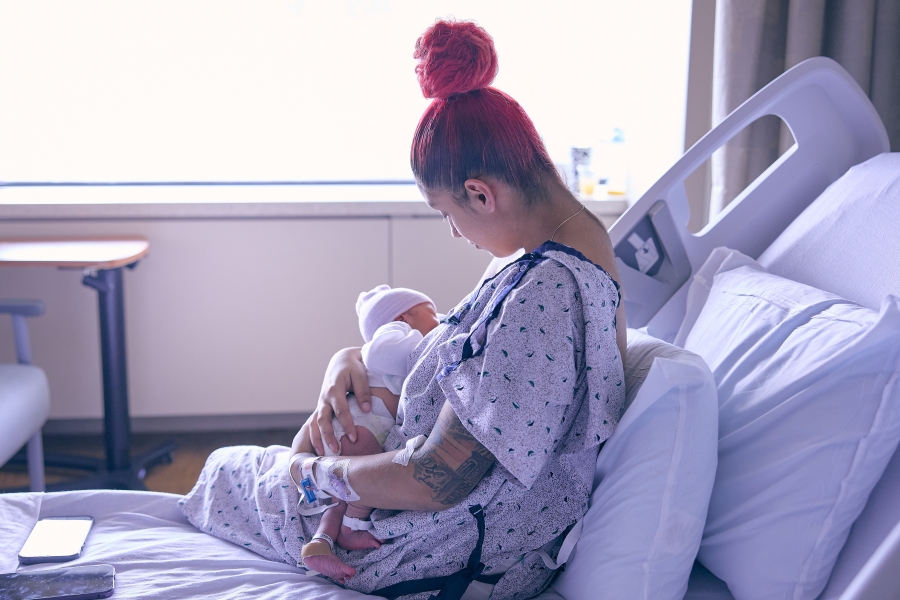An epidural is a procedure that involves inserting a small catheter into the lower back and using it to administer local anesthesia or numbing medication. This numbs all pain in the lower body.
With an epidural, you will be completely pain-free in your lower body, but you will still feel some sensation, like pressure, in the numbed area.
Epidurals have been widely used for decades, and large research studies have shown that they are the safest and most effective way to control pain during labor and delivery.
The epidural procedure itself takes between 10 and 30 minutes to complete. During the procedure, you will sit on the side of the bed, and your lower back will be numbed with a topical numbing medicine. A tiny catheter, about the width of angel hair pasta, will be inserted into a small space in the lumbar area of your back, away from the spinal cord. You will feel a small pinch when the catheter is inserted, like getting a vaccine.
You can get an epidural at any point during childbirth, from the very beginning stages of labor, right up until moments before delivery. The epidural provides continuous medication to maintain pain control for as long as you need it. The effects will wear off as soon as we stop the medication drip.
Temple is now offering a dural puncture epidural, an updated technique that works faster to control your pain.

